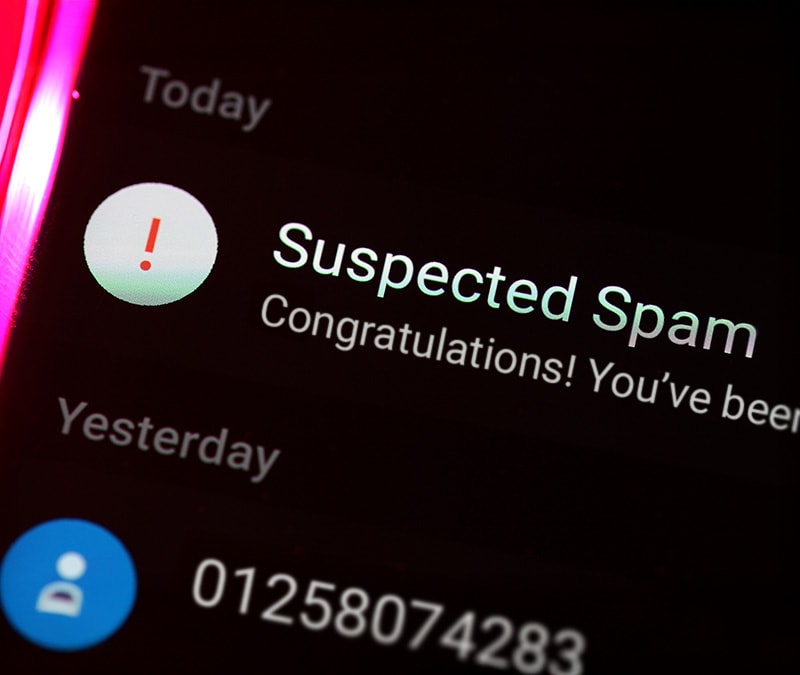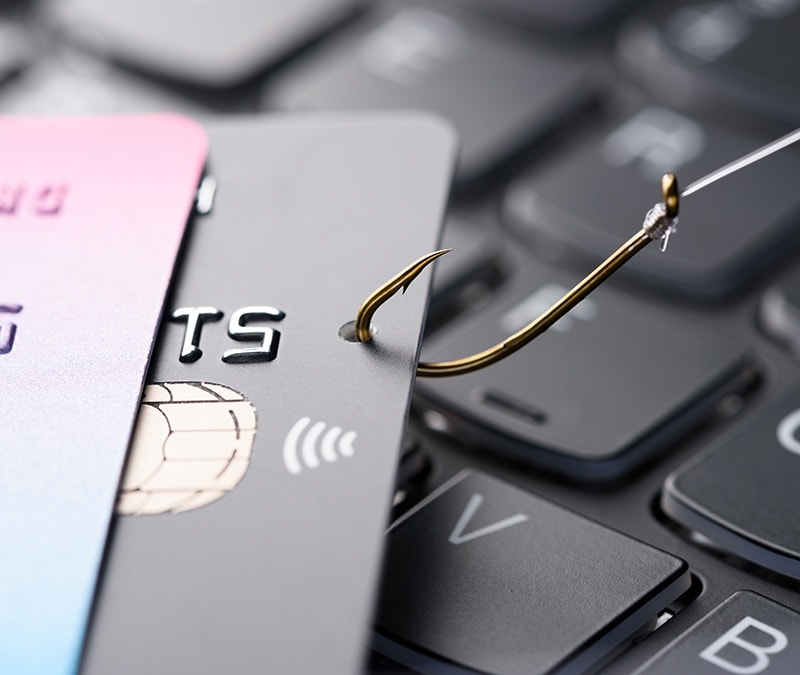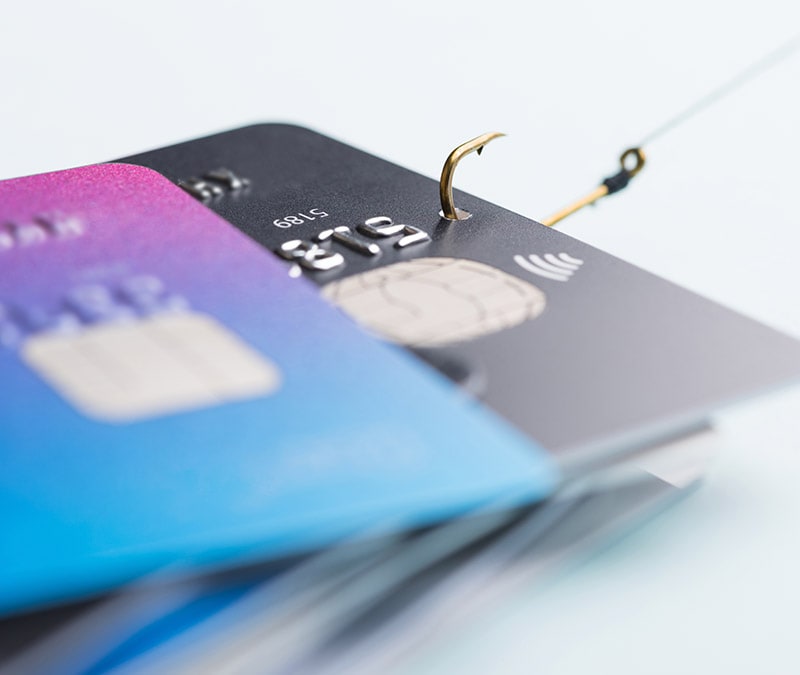DMV texted you about an unpaid ticket? It’s probably a scam
DMV text scams are on the rise across the U.S. Learn how to spot them and how Norton 360 Deluxe can help protect you from phishing, malware, and fraud.

When I opened my phone and saw a text claiming I had an outstanding traffic ticket from the DMV, my heart dropped. I write about scams for a living, so I usually catch these things, but this one looked legitimate. There were no obvious typos or bad grammar, just a very official-looking message.
Turns out, DMV text scams are popping up everywhere. Several of my coworkers in different states, including in Virginia, California, and Colorado, have also received them.
Knowing the warning signs can help you avoid giving scammers access to your personal or financial information. Here are the most common DMV text scams, how to spot them, and what to do if you’ve already clicked the link.
1. You have an outstanding traffic ticket
You might get a text saying you owe a traffic ticket and need to pay it that same day to avoid serious consequences, like license suspension, legal trouble, or a hit to your credit score.
The message usually ends with a link to “pay the fine,” but it’s all a trap. The threat of legal action and lost driving privileges creates urgency and fear, pushing you to act fast. Instead of resolving a real ticket, though, you’re handing over your credit card details and personal information to a scammer.
What scammers hope you don’t know: Random capitalization, strange phrasing, and a shady URL that doesn’t match the DMV’s official website are all signs of a phishing scam.


2. You owe money for an unpaid toll
Claiming to be from the DMV, this version of the scam says you have an unpaid E-ZPass toll.
The message usually includes a deadline and a warning that you’ll face fines or even lose your driving privileges if you don’t pay. It ends with a smishing (short for SMS phishing) link that sends you to a fake payment site designed to steal your personal and financial information.
What scammers hope you don’t know: The DMV doesn’t handle E-Z Pass tolls and will never text you about them.
3. Fake appointment reminder
This scam starts with a text that looks like a legitimate DMV reminder about an upcoming appointment. Since many DMVs send texts like this, it can be easy to fall for, especially if you have an appointment coming up. If you’re unsure, don’t click the link. Instead, contact your DMV directly through its official website or phone number to confirm or make changes.
What scammers hope you don’t know: The link isn’t actually from your local DMV. It may look official at first glance, but it’s designed to steal your personal information or infect your device with malware.
4. Texts offering a refund payment
If you get a text claiming you’re owed a vehicle-related refund from the DMV, don’t get your hopes up. This scam message typically includes a link to claim your “refund” by a certain deadline, but in reality, it leads to a fake site designed to steal your banking details.
What scammers hope you don’t know: The DMV won’t send texts offering refunds by a certain deadline. If it seems too good to be true, it probably is.
5. Your REAL ID may be canceled
In this version of the scam, the message claims your REAL ID has been flagged as fraudulent or even canceled. It includes a link urging you to verify or update your information. But entering personal details, like your driver’s license number, could put you at risk of identity theft.
What scammers hope you don’t know: The DMV doesn’t send texts threatening to cancel your ID or demanding sensitive information.
Warning signs that text from the DMV is fake
If you receive a text from the DMV, here are a few signs you should pump the brakes:
- Suspicious links: Legitimate DMV messages usually won’t include clickable links, especially ones with strange or shortened URLs.
- Typos and poor grammar: Awkward wording, random capitalizations, and unusual phrasing can be signs of a phishing scam.
- Threats and urgency: Messages that say your license will be suspended or your ID will be canceled if you don’t act immediately are almost always fake.
- Strange sender info: Watch out for messages from odd area codes or random email addresses.
- Requests for personal information: The DMV will never text you asking for your driver’s license number, Social Security number, or payment details.
Already fell for the DMV text scam? Do this next
If you fell for a DMV text scam and clicked the phishing link, don’t panic. Take these steps to help protect your personal information and minimize any damage:
- Contact your bank if you entered any financial details. Let them know what happened so they can monitor your account or freeze your card if needed.
- Place a fraud alert on your credit report to help block scammers from opening new loan accounts in your name.
- Run a malware scan on your phone or device, especially if you downloaded anything from the link.
- Change your passwords for any accounts you may have logged into after clicking the link starting with your email and bank account.
- Report the scam to your state DMV, the Federal Trade Commission (FTC), or the Internet Crime Complaint Center (IC3) to help others stay safe.
Don’t let scammers speed past your defenses
Scammers are trying to steer you into all kinds of traps. Luckily, Norton 360 Deluxe can help detect scams and keep your personal information under lock and key. With AI-powered scam protection, you get added peace of mind every time a suspicious text pops up.
FAQs
Will the DMV contact you by text?
Yes, but only if you’ve opted in to receive text updates or appointment confirmations. These messages are informational only and will never ask you to provide personal details like your Social Security number or driver’s license via text.
What number does the DMV text from?
The number the DMV uses to send texts varies by state, and legitimate messages are usually short codes or official numbers. Always verify the messages through your state’s DMV website before responding or clicking any links.
How do I know if a DMV text is a scam?
A DMV text that’s likely a scam will often pressure you to act quickly, make threats, ask for personal information, or include suspicious links.
What should I do if I think I actually have an unpaid ticket?
If you think you have an unpaid ticket, go directly to your state DMV’s official website or contact them by phone to check your status. You can also log into your DMV account online, if you have one, to view any outstanding tickets or fees.
Editorial note: Our articles provide educational information for you. Our offerings may not cover or protect against every type of crime, fraud, or threat we write about. Our goal is to increase awareness about Cyber Safety. Please review complete Terms during enrollment or setup. Remember that no one can prevent all identity theft or cybercrime, and that LifeLock does not monitor all transactions at all businesses. The Norton and LifeLock brands are part of Gen Digital Inc.
- 1. You have an outstanding traffic ticket
- 2. You owe money for an unpaid toll
- 3. Fake appointment reminder
- 4. Texts offering a refund payment
- 5. Your REAL ID may be canceled
- Warning signs that text from the DMV is fake
- Already fell for the DMV text scam? Do this next
- Don’t let scammers speed past your defenses
- FAQs









Want more?
Follow us for all the latest news, tips, and updates.